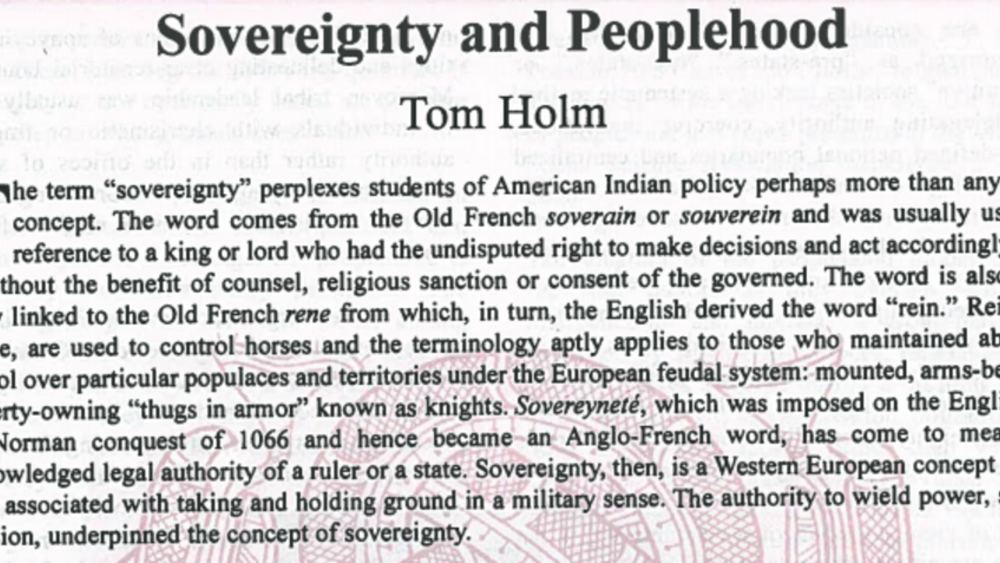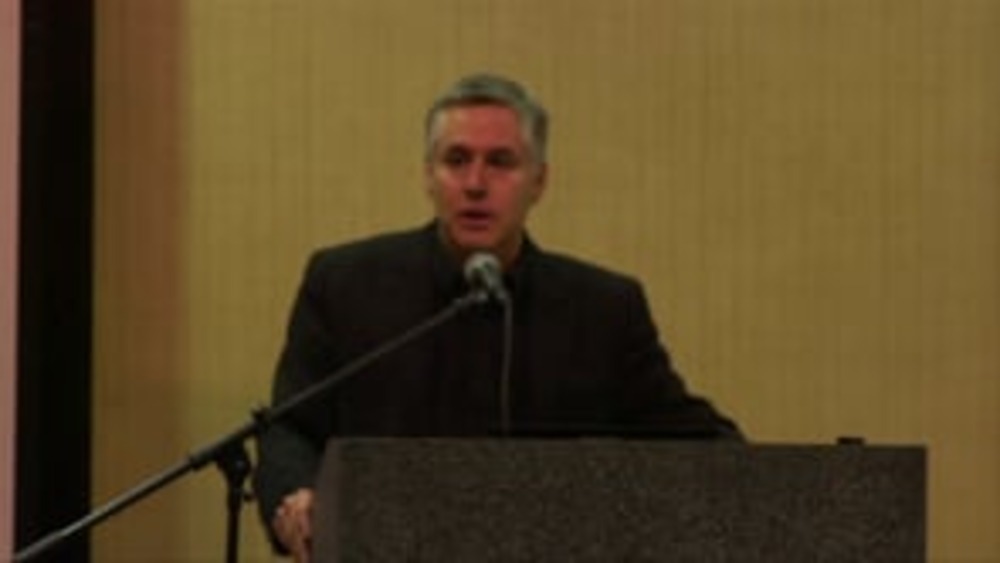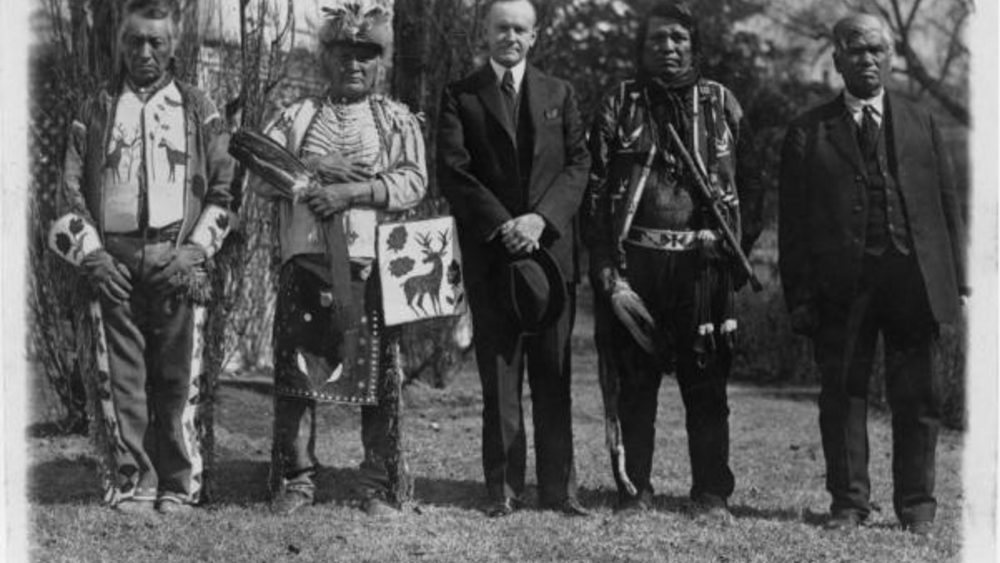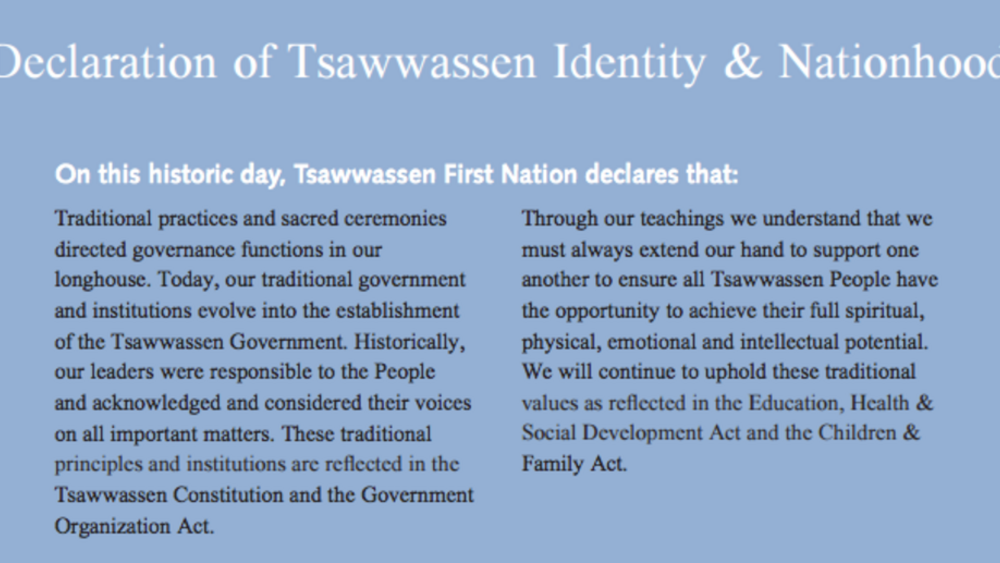Indigenous Governance Database
peoplehood

Sovereignty and Peoplehood
The term "sovereignty" perplexes students of the American Indian policy perhaps more than any other concept. The word comes from the Old French soverain or souverein and was usually used in reference to a king or lord who had the undisputed right to make decisions and act accordingly with or…

John Borrows: Anishinaabe Principles of Citizenship and Identity
University of Minnesota Law Professor John Borrows (Anishinaabe) provides an overview of how Anishinaabe people defined citizenship and identity traditionally, and how the cultural principles embedded in that traditional definition possess great power to inform laws defining tribal citizenship…

How Do We Re-Member?
On July 2, the tribal council of the Confederated Tribes of the Grand Ronde held a special meeting to allow their citizens an opportunity to testify for or against a proposed emergency enrollment ordinance whereby the Council sought to delegate its constitutional authority to involuntarily…

Indigenous and 21st Century Nationalisms
Indigenous Peoples live within the boundaries of nation-states but usually do not conform to the cultural, political, economic institutions and identities of their host states. Most contemporary democratic nation states are created by agreement through adoption of a constitution, which spells out…

Disenrollment Demands Serious Attention by All Sovereign Nations
For most people, their sense of who they are–their identity–is at least partially defined from connection to others and to a community. When individuals are forced to sever those connections, the consequences can be devastating. Unfortunately, all too often in tribal disenrollment conflicts–like…

Declaration of Tsawwassen Identity & Nationhood
We are Tsawwassen People "People facing the sea", descendants of our ancestors who exercised sovereign authority over our land for thousands of years. Tsawwassen People were governed under the advice and guidance of leaders, highborn women, headmen, and speakers through countless generations...
